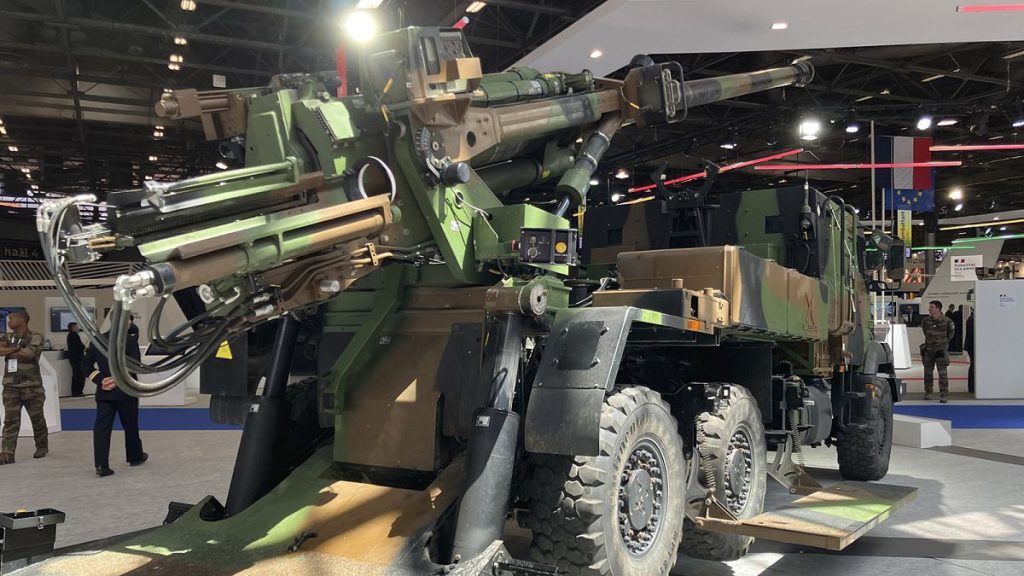The French district court in Bobigny has ruled that Israel will be excluded from participating in the international defence expo Eurosatory 2024. This decision was made on the grounds that Israeli companies and their representatives could potentially act as intermediaries for Israeli arms firms. This ruling comes after a previous court decision in favor of NGOs requesting the ban on Israeli companies and their representatives at the event. Despite efforts by the event organiser, Coges, to appeal the decision, the exhibition had already begun and runs until Friday. This exclusion of Israeli participants is due to ongoing tensions related to Israeli military operations, specifically in Rafah, which led to the French Defence Ministry deeming it unsuitable to host Israeli companies at the event.
Seventy-four Israeli firms were originally set to exhibit weapons at Eurosatory 2024 before the legal battle ensued. This decision has led to disappointment for companies like Cylinx, who had been preparing for the exhibition for years. The absence of Israeli participants at Eurosatory is not only disruptive to their business plans but also indicative of broader geopolitical tensions related to Israeli military operations and French President Emmanuel Macron’s call for the cessation of IDF operations in Rafah. The order to ban Israeli companies from the Paris show came after Israel’s air force bombed a refugee camp in Rafah, resulting in civilian casualties.
Other notable absentees from Eurosatory 2024 this year include Russia and Belarus. The decision to exclude Israel, Russia, and Belarus from the event reflects ongoing conflicts and political tensions at the international level. The event, founded in 1967, is a biennial gathering that attracts over 1,700 firms and 60,000 attendees from 150 countries. It is considered an essential global event for defence and security professionals. The exclusion of Israeli participants is likely to have implications for the diplomatic relations between Israel and France, as well as for the companies that were set to exhibit at the event.
The court’s decision to exclude Israel from Eurosatory 2024 raises questions about the impact of geopolitical conflicts on international arms exhibitions. The ban on Israeli companies and their representatives highlights the complexities of hosting such events in a politically charged environment. The decision by the French district court in Bobigny to exclude Israeli participants adds to the ongoing legal battles and tensions surrounding the event. Despite efforts to appeal the decision, Israeli companies were ultimately barred from participating in the arms expo, further complicating the already intricate relationship between Israel and France.
The exclusion of Israeli participants from Eurosatory 2024 is not only a setback for the companies that were preparing to exhibit at the event but also a reflection of the broader political context surrounding Israeli military operations. The ban on Israeli companies at the arms expo follows a series of diplomatic tensions and calls for the cessation of IDF operations in Rafah by French President Emmanuel Macron. This decision highlights the challenges faced by event organisers and participants in navigating political sensitivities and conflicts on the international stage. The absence of Israeli, Russian, and Belarusian participants from Eurosatory 2024 underscores the complex geopolitical dynamics shaping the global arms trade and defence industry.
As Eurosatory 2024 unfolds without Israeli, Russian, and Belarusian participants, it serves as a reminder of the interconnectedness of international politics, security, and arms exhibitions. The exclusion of certain countries from the event reflects the ongoing conflicts and tensions that influence global security and defence strategies. The court ruling barring Israeli participants from the arms expo underscores the complex web of diplomatic relations and power dynamics that shape international events. The implications of this decision extend beyond the immediate impact on Israeli companies to broader questions about arms trade regulations, geopolitical conflicts, and the role of defence exhibitions in the modern world.


